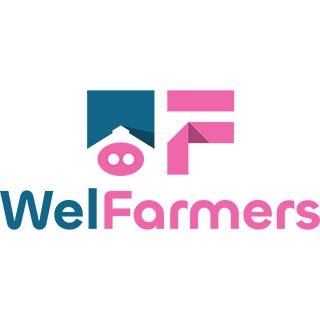Abstract: Rationalising the practice of immunocastration
Type and Average of Pigs on the Farm
250 sows, 960 weaners, 1,914 grower-finishers.
Farming System
Intensive, small-medium scale production system.
Description and Evaluation of the Good Practice
Since 2022, this farm has implemented immunocastration to eliminate surgical castration avoiding any risk of odour. The system is designed to simplify the process: pigs are sexed at 21 days, grouped and managed through pre-fattening and fattening stages. Males and females are housed separately. The first injection is given at 16 weeks, followed by a second at 20 weeks. A third injection is administered to about 10 males per batch if needed. Vaccination is done efficiently without panels, and efficacy is checked two weeks after the second injection. The farm operates on a weekly cycle, allowing synchronized injections and controls. No boar taint has been reported by the slaughterhouse.
Farm Context
- Pigs
Genetics: Topigs TN70 (sows), Maxter (boars)
Final weight: 120 kg live, 95 kg carcass
Slaughter age: 26 weeks
IGP Bayonne - Environmental Enrichment
Not specifically mentioned. - Housing and Management Characteristics
Same feed for males and females. Males and females housed separately.
Vaccination boxes used for injections and marking.
Floor type: Slatted - Management Practices
Immunocastration protocol: 2 injections at 16 and 20 weeks, with a third if needed.
Training: In-house breeding, training completed.
Staff: 3 people per batch.
Safety: Manufacturer’s precautions followed.
Feedback: No boar taint reported in 3 years.
Economic Analysis
Cost only for immunocastration: 4,26 €/male
Total Cost: ~5.26 €/male pig (vaccines, labor, equipment).
Production cost: 0.044 €/kg.
Selling price: Standard.
Environmental Analysis
No significant environmental impact reported.
Replicable Benefits and Relevance for Other EU Countries
The practice improves technical performance, eliminates castration, and calms animals. Easily reproducible in other countries with proper organization and buyer/slaughterhouse support.

